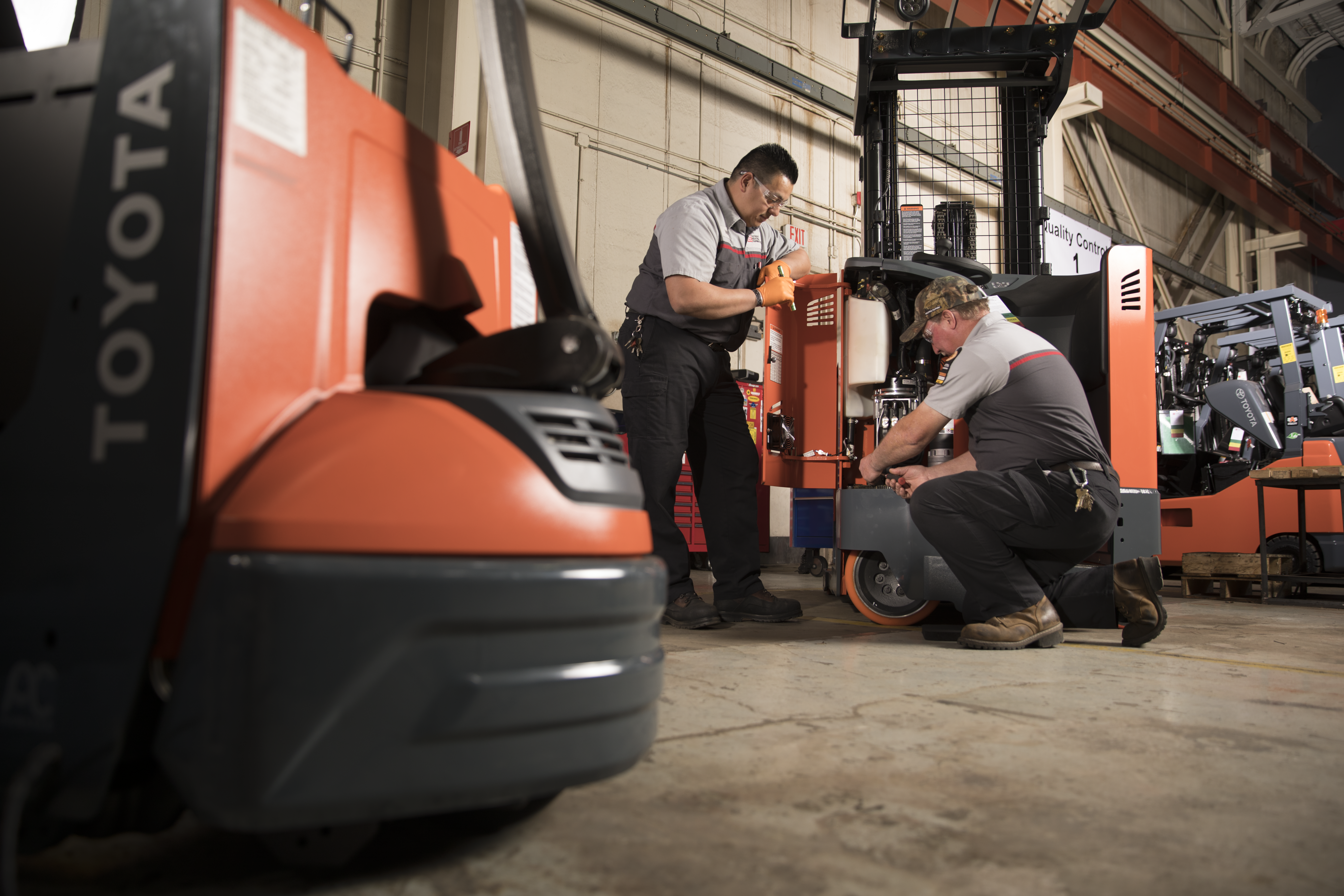In the world of material handling, forklifts are the backbone of productivity. They move loads quickly, efficiently, and safely across warehouses, construction sites, and various other environments. However, to keep these essential machines running at their best, regular maintenance is critical. Whether you’re operating a single forklift or managing an entire fleet, here’s why consistent upkeep should be a top priority.
1. Enhanced Safety
The most significant benefit of regular forklift maintenance is improved safety. A well-maintained forklift reduces the risk of malfunctions that could lead to accidents. For instance, worn-out brakes, leaky hydraulics, or faulty steering can all contribute to hazardous situations. Routine inspections and timely repairs ensure that all safety features, such as lights, horns, and backup alarms, are functioning correctly, protecting both operators and nearby workers.
2. Increased Equipment Longevity
Forklifts are a substantial investment, and regular maintenance helps maximize that investment by extending the life of your equipment. Just like any other machine, forklifts experience wear and tear over time. Regular oil changes, filter replacements, and inspections of key components like the transmission and engine prevent minor issues from developing into major, costly problems. By catching and addressing these issues early, you can keep your forklift in service for years longer.
3. Improved Performance and Efficiency
A well-maintained forklift operates more efficiently. Components such as tires, forks, and hydraulics need to be in optimal condition to ensure smooth and precise operation. When these parts are worn or damaged, the forklift may struggle to perform tasks, leading to delays and reduced productivity. Regular maintenance ensures that your forklift runs smoothly, minimizing downtime and allowing your team to maintain a steady workflow.
4. Lower Operating Costs
While some may view regular maintenance as an added expense, it’s actually a cost-saving measure in the long run. Preventive maintenance is far less expensive than major repairs caused by neglect. For example, replacing a worn-out tire is much cheaper than repairing the damage caused by a blowout during operation. Additionally, a well-maintained forklift uses fuel and energy more efficiently, lowering your overall operating costs.
5. Compliance with Regulations
Forklifts are subject to various safety regulations and standards, including those set by OSHA (Occupational Safety and Health Administration). Regular maintenance ensures that your equipment meets these standards, reducing the risk of fines and legal issues. By keeping your forklifts in compliance, you also protect your business’s reputation and demonstrate a commitment to safety.
6. Better Resale Value
When it’s time to upgrade or sell your forklift, a well-maintained machine will command a higher resale value. Prospective buyers or trade-in partners will look for forklifts with a documented maintenance history, as this indicates that the equipment has been well cared for and is less likely to have hidden issues. Regular maintenance not only benefits your current operations but also pays off when it’s time to move on to newer equipment.
Regular forklift maintenance is essential for ensuring safety, efficiency, and longevity. By prioritizing routine inspections and repairs, you not only protect your investment but also create a safer, more productive work environment. Whether you’re managing a single forklift or an entire fleet, consistent upkeep will keep your operations running smoothly and your costs under control. Don’t wait for a breakdown—maintain your forklifts regularly and enjoy the benefits for years to come.
